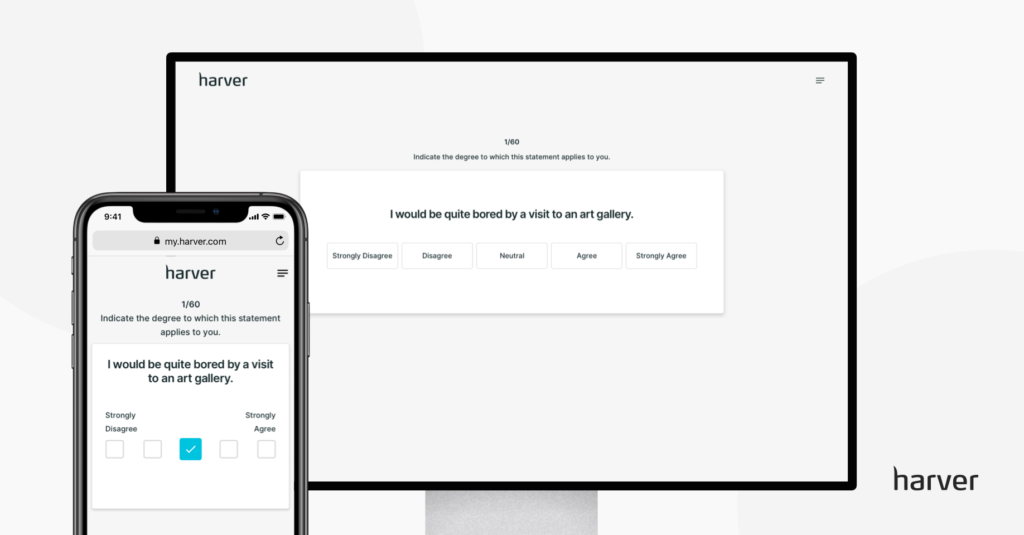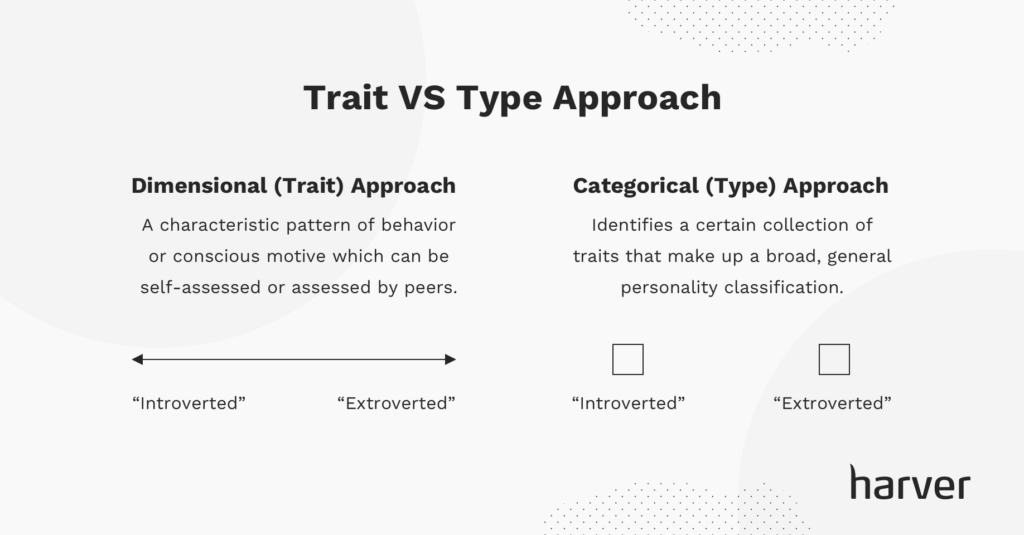Most companies will carry out some form of candidate screening before making a hiring decision. But what about checking to see if your preferred candidate has the personality, disposition, and potential that you require for your job, and your organization?
To find out, you can use personality questionnaires to gain a better insight into your short (or long) list of candidates.
It is incredibly difficult to gauge how a candidate will behave in a future position based on their resume and interview alone. Of course, past employer references help in providing an insight into how a candidate has behaved in a previous position, but they won’t show you the whole truth.
And neither can a personality questionnaire tell you all about a person, but the right personality questionnaire can reveal a little extra insight, which can be enough to set the top candidates apart from one another.
So just how do personality questionnaires aid in your recruitment efforts and help you make a hiring decision?
And more specifically, what questions should a good personality questionnaire in recruitment contain, what and who are they good for and how do you make sure that they actually improve your hiring process?
What’s in?
Why use a personality questionnaire when selecting candidates?
Employee turnover is an expensive part of recruitment – on average, an employee will stay with a company for 4.6 years. But if you hire the wrong person it can be a costly mistake to make.
In order to reduce costs significantly, ensuring you hire the right person in the first place should be a priority, which is where personality questionnaires can help you out.
91% of companies that use pre-employment testing in their candidate selection process also include personality questionnaires to make better hiring decisions.
93%
of hiring professionals are confident that personality questionnaires predict job success.
Source: CriteriaCorp
Personality questionnaires are recruitment tools that allow the recruitment team, HR and interviewers a better insight into a candidate’s personality including their general outlook, their attitude to work and whether they’d be a good cultural fit with the rest of the organization.
Not all personality questionnaires are created equal and they can vary vastly in terms of quality as well as reliability, and candidates themselves can try and ‘trick’ the system by giving answers they think you want to hear.
Like what you see?
Don’t miss out. Subscribe to our quarterly digest to get the latest TA and TM resources delivered right to your inbox.
What are personality questionnaires for recruitment?
With so many suitable applicants applying for the same position, narrowing down the shortlist of potential candidates can be tough, especially when multiple candidates have the relevant experience and the specific skill sets you require.
So, without wanting to risk introducing bias into the recruitment process, personality questionnaires are an incredibly beneficial recruitment tool, especially when used alongside other types of pre-employment testing.
To be clear, a personality questionnaire is not the same as a questionnaire focused on personal or career development.
A personality questionnaire for recruitment is designed specifically to ascertain a candidate’s approach to work by measuring specific behavior indicators and reveal key desirable characteristics in individual candidates.
For example, it can assess ambition and ownership, empathy, communication skills, motivation, and if they have a passion for learning and improvement.

As mentioned previously, personality questionnaires for recruitment can vary in the results they yield, and while they can be hugely beneficial, it is worth remembering that they also have their limitations.
Benefits of personality questionnaires
Providing a more holistic picture of a candidate
A personality questionnaire can give you a glimpse into the person behind the resume, giving you a deeper understanding of each candidate and a better foresight as to whether they would suit the team they are applying to join.
Narrowing down the candidate pool
Personality tests help in optimizing the talent pool by revealing candidates who are great on paper, but who wouldn’t fit your company culture, without introducing personal bias.
More informed hiring decisions
Allowing for a more informed interview process as you get to know candidates better from the start. The answers revealed from the questionnaires can help steer the interview in a positive way by asking candidates to talk about their strengths, weaknesses and soft skills, as determined by the personality questionnaires.
Candidates learn about themselves
If you share the results of the questionnaire, candidates can learn more about themselves and where their strengths and weaknesses lie, better preparing them for future job applications or career developments. This also provides a positive candidate experience.
Hire based on data
The questionnaires allow for a data-driven approach to recruitment, removing bias and getting rid of gut feeling. The results are based on the answers provided by the candidates themselves about how they might behave in a work environment as well as what you might expect from their future job performance. More specifically, you can assess their role and organizational fit.
Culture-fit and job performance
They enable you to strengthen your existing teams by ensuring you select candidates who fit with your company culture. Also, when combined with other pre-employment tests, such as cognitive ability tests, personality questionnaires can be a strong predictor of future job performance.
Limitations of personality questionnaires
Limited face validity
Personality questionnaires can appear daunting to candidates who don’t fully understand their relevance for the employee selection process, and don’t realize they are nothing to fear. It is up to you to explain to candidates the purpose of these pre-employment selection tests and why you’re asking candidates to take them.
Lengthy application
They can be lengthy, requiring candidates to dedicate valuable time to completing them, which may result in great candidates abandoning the job application process in favor of a company with a less demanding application process.
Candidates don’t always see the benefits of the personality questionnaire for themselves and can view them as another hoop to jump through, not giving the personality questionnaire the proper time and attention it requires. Explain to candidates that you’re using the personality questionnaires as a way to get to know them better as individuals, not just to assess them, but so they are viewed as people, not merely numbers on a payroll.
Risk of socially desirable answers
If candidates are concerned that they aren’t what you are looking for, they could potentially provide false and misleading answers to the questions. This is why personality questionnaires should be used in conjunction with other pre-employment tests and you should always follow up the tests with an interview to confirm the questionnaire’s results.
In lieu of these limitations, there are some best practices that you can adopt to ensure that your candidates fully engage with and understand the purpose of any pre-employment personality questionnaire, and that you make the most of it to improve your recruitment process.
See personality questionnaires in action.
Learn how using personality questionnaires can help you improve your pre-selection.
8 pre-employment personality questionnaires best practices
1. Understand why you’re using a personality questionnaire
You aren’t using it to select candidates with certain personality, you want to encourage diversity within your teams after all.
Rather pre-employment personality questionnaires should be used to better understand who your candidates are, what their strengths (and weaknesses) are in terms of ability and soft skills, and where they are likely to excel in the job and where they might need more assistance. As well as reveal what approach to the job they are likely to take.
Pay attention to relevant behavior indicators to select candidates with the highest probability of succeeding in the role.
2. Research questionnaire options
There are many different types of personality questionnaires you could use, such as:
- The Caliper Profile – this measures a candidate’s personality traits and their job performance potential by measuring their intrinsic motivations that relate to the role.
- Myers-Briggs Type Indicator (MBTI) – this identifies in which direction an employee’s personality leans in with one of 16 personality types (this one is most often used to determine if a candidate would be a good cultural fit within a company.)
- Hogan Personality Inventory – this is mainly used as a predictor of job performance, providing insights into how people work and lead.
- HEXACO Personality Inventory – this questionnaire is great for helping you identify candidates with the right personality disposition and potential for your job and your organization.
In general, personality questionnaires are either trait-based or type-based.
The first type (such as HEXACO) is more suitable for selection, because it shows results on a scale and focuses on unique traits of individuals rather than sorting them into fixed categories. The second type (such as MBTI) is more useful for coaching and personal development.

3. Combine personality questionnaires with other assessments
Don’t just use personality questionnaires on their own. They provide much better insight when used alongside other pre-employment tests as they all help to increase the predictive value and get to know different aspects of your candidates.
Consider using a cognitive ability assessment and/or cultural fit assessment together with the personality questionnaire to get a holistic picture of a candidate.
4. Be aware of ‘cheating’
Some candidates will tell you what they think you want to hear and as such, they don’t reveal their true personality and potential for your job.
To mitigate against this risk, it’s your responsibility to ensure that you clearly explain what the purpose of the questionnaire is – that it is a way for you to get to know them, not to exclude them.
30%
of applicants “fake good” in personality questionnaires.
Source: Dr. Gerry Fahey
‘Faking good’ means answering in a way to make oneself look better. There is a risk of socially desirable answers in personality questionnaires in recruitment which has to be considered when you’re implementing this form of pre-employment assessment.
5. Explain the questionnaire’s goal to hiring managers
If your hiring managers don’t understand what the point of the personality questionnaire is, there is a chance that they won’t use it to good effect. Make sure everyone understands that it is not designed to discriminate against anyone, but rather to start a conversation with the candidate about how they would approach work at your company.
6. Use the insights to improve your interview process
The main point of using the personality questionnaire is to help you better understand the candidate and allow you to see where their particular strengths and weaknesses lie in their soft skills and in their general approach to your job.
Let the personality questionnaire guide your interview, ie what did you learn about your candidate that you would like to talk in the interview about? Because the answers revealed will allow you to dig deeper into the behavior and soft skills of your candidates.
7. Share the questionnaire results with the candidates
If you want candidates to fully engage with the questionnaire, give them a copy of the results. Not only will this encourage them to be more open and honest in their answers, but if they aren’t successful in your hiring process, the results can let them learn something about themselves, plus any feedback you can give them will improve their candidate experience.
8. Continue having conversations with your new hires
You will know what to expect from your candidates before they start and you will know how to assist them in their onboarding and how to help them develop themselves.
2/3
of US companies don’t monitor whether their hiring practices lead to good employees.
Source: Peter Capelli / HBR
Don’t forget to monitor how personality questionnaires benefit (or not) your hiring process. Has your quality of hire improved? Has your new hire turnover decreased? Looking into this data will help you optimize your candidate selection.
A final word
If used the right way, personality questionnaires can really improve your recruitment process if implemented thoughtfully and understood right.
However, make sure to use them as guidance for your interviews rather than an ultimate decision-making tool. And combine them with other assessments to get a complete picture of your candidate.
See personality questionnaires in action.
Learn how using personality questionnaires can help you improve your pre-selection.


